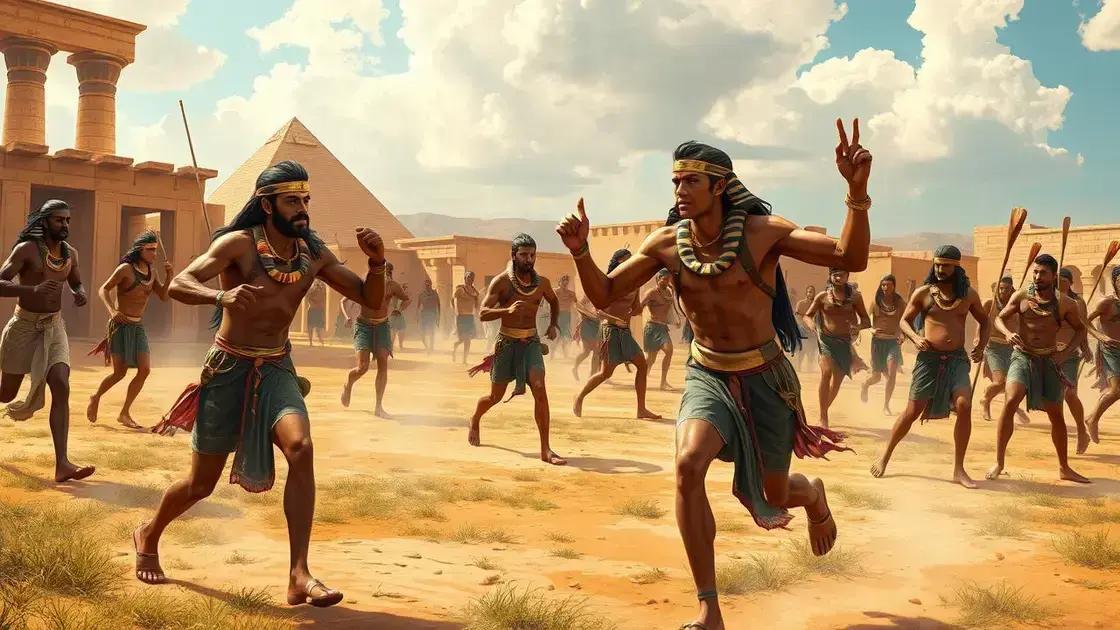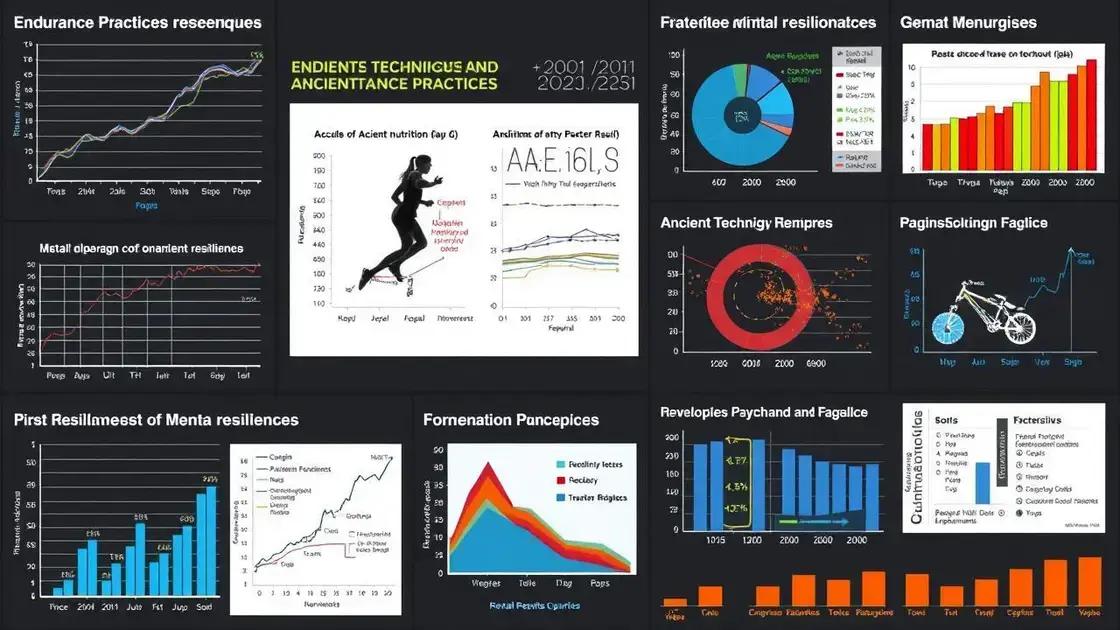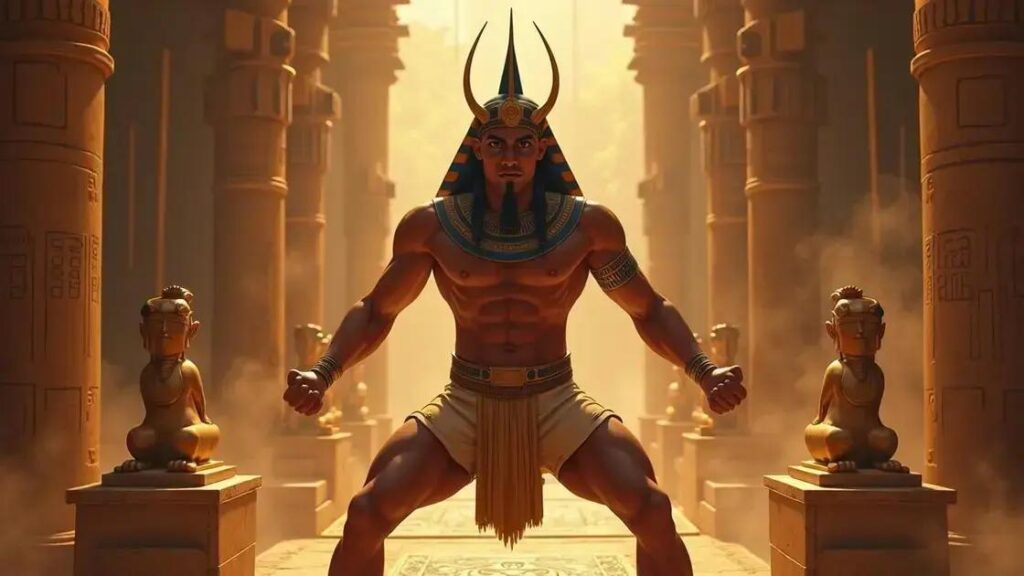The Trick of the Egyptian Pharaohs is believed to enhance physical endurance through ancient techniques such as rigorous training, holistic nutrition, and mental resilience practices, which modern athletes are now adopting to boost their performance and stamina.
The Trick of the Egyptian Pharaohs is an intriguing concept that many seek to explore. This ancient practice may hold secrets to enhancing physical endurance, drawing interest from athletes and fitness enthusiasts alike. As we dive into the historical context and how modern athletes might incorporate these ancient techniques, we’ll also look at scientific studies that validate these endurance practices. Join us to discover how the wisdom of the past might improve your performance today.
Introduction to the Trick of the Egyptian Pharaohs

The Trick of the Egyptian Pharaohs refers to ancient methods and practices believed to enhance physical endurance. This concept has fascinated historians and athletes alike, as it suggests that the techniques used thousands of years ago can still have relevance today.
Origins of the Trick
Ancient Egyptians were not only known for their achievements in architecture and art, but they also had a deep understanding of physical fitness and endurance. They utilized various exercises, traditional foods, and rituals that supported their physical capabilities.
Common Practices
The practices attributed to the Pharaohs involved a combination of strength training and endurance exercises. Engaging in activities like running, wrestling, and other forms of physical exertion was common. Additionally, they often consumed a diet rich in grains, fruits, and proteins to fuel their bodies for demanding physical tasks.
Spiritual and Physical Connection
Furthermore, the Egyptians believed there was a spiritual component to physical endurance. Many rituals focused on mental strength and discipline, which they thought were crucial for optimal physical performance. This holistic approach highlights the interconnectedness of mind and body in achieving endurance.
Historical Context of Egyptian Endurance

The historical context of Egyptian endurance dates back to ancient times when physical prowess was crucial for survival. Egyptians were known for their remarkable physical capabilities, which allowed them to perform demanding tasks such as building monumental structures and participating in elaborate military campaigns.
Role of Physical Fitness
Physical fitness in Ancient Egypt was not only about strength but also endurance. The ability to endure long hours of work or engage in lengthy battles was vital. Egyptians practiced various forms of exercise to develop their stamina.
Training Regimens
Training regimens during this period included running, swimming, and wrestling. These activities were often seen as both sport and preparation for real-world challenges. They were integrated into the daily lives of soldiers and laborers, ensuring that they maintained peak physical condition.
Cultural Significance
Endurance also had cultural importance in Ancient Egypt. Competitions in athletics were common, and winning these contests brought honor to families and cities. The Egyptians revered the physical abilities of their athletes, often associating them with their gods.
How Modern Athletes Use Ancient Techniques

Modern athletes are increasingly looking to the past to enhance their physical performance, using techniques derived from the ancient practices of the Egyptians. These ancient methods are being integrated into training regimens to boost endurance and strength.
Incorporating Endurance Training
One significant technique is interval training, which mimics the kind of rigorous training that Egyptian laborers would have engaged in. Athletes now utilize short bursts of high-intensity workouts followed by rest periods to improve stamina and recovery.
Diet and Nutrition
Additionally, the nutritional practices of ancient Egyptians are being revisited. Their diets, rich in grains, fruits, and vegetables, provide athletes with the necessary energy for long training sessions. Modern athletes are now focusing on whole foods similar to those consumed in ancient times.
Mental Discipline
Moreover, the Egyptian emphasis on mental discipline is gaining traction among today’s athletes. Mindfulness and visualization techniques are increasingly being used to enhance focus during competitions. This holistic approach can improve not just physical endurance but also mental resilience.
Scientific Studies on Endurance Practices

Scientific studies on endurance practices have provided valuable insights into how ancient techniques, such as those of the Egyptian Pharaohs, can enhance physical performance. Researchers have examined various aspects of endurance training and the benefits linked to traditional methods.
Impact of Interval Training
One focus area is interval training, which has roots in ancient training methods. Studies have shown that this type of workout can significantly improve cardiovascular endurance. Athletes using short bursts of intense activity followed by recovery periods have seen faster gains in stamina.
Nutrition and Performance
Additionally, research examining the diet of ancient Egyptians suggests that whole grains and natural foods can boost endurance. Modern athletes adopting similar nutritional practices have reported increased energy levels and enhanced performance during training.
Mental Resilience Studies
Furthermore, studies on mental resilience indicate that practices like visualization, inspired by historical training methods, can lead to better focus and emotional control during competitions. This connection between ancient techniques and modern science highlights the potential benefits of a well-rounded approach to endurance.
The Lasting Impact of Ancient Techniques
The exploration of the Trick of the Egyptian Pharaohs reveals valuable insights into enhancing physical endurance through historical practices. Integrating techniques such as interval training, proper nutrition, and mental resilience draws a strong connection between past and present.
Modern athletes continue to benefit from these age-old methods, proving that wisdom from ancient cultures can still have a significant impact on today’s training regimes.
As we delve deeper into the science behind endurance practices, it becomes clear that embracing these principles can not only enhance performance but also evoke a rich history linked to human achievement and strength.
In conclusion, acknowledging and incorporating these ancient techniques may unlock new levels of physical endurance for athletes in the contemporary world.
FAQ – Frequently Asked Questions about the Trick of the Egyptian Pharaohs and Endurance
What is the Trick of the Egyptian Pharaohs?
The Trick of the Egyptian Pharaohs refers to ancient methods and techniques believed to improve physical endurance, rooted in the practices of ancient Egyptians.
How did ancient Egyptians enhance their endurance?
They engaged in rigorous physical training, interval exercises, and maintained a diet rich in whole foods, which contributed to their overall physical fitness.
Can modern athletes benefit from ancient techniques?
Yes, many modern athletes are incorporating ancient techniques, such as interval training and holistic nutrition, into their training regimens to improve endurance.
What role does mental resilience play in endurance?
Mental resilience, often developed through practices like visualization used by ancient athletes, helps modern athletes maintain focus and control during competitions.
Are there scientific studies supporting these ancient techniques?
Yes, numerous scientific studies show that practices like interval training and diet similar to those of ancient Egyptians can boost endurance and overall performance.
How can I start incorporating these techniques into my training?
Begin by integrating interval workouts, focusing on nutrition based on whole foods, and practicing mental techniques, such as mindfulness and visualization.













